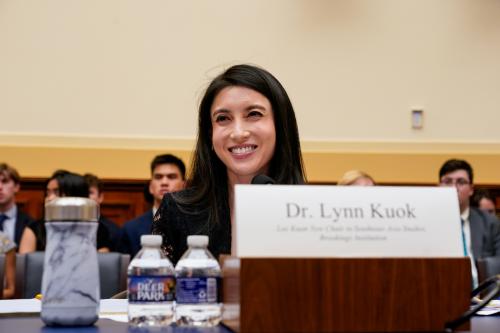

10:30 am EST - 12:00 pm EST
Past Event
10:30 am - 12:00 pm EST
1775 Massachusetts Avenue NW
Washington, DC
20036
The transatlantic partnership—underpinned by a comprehensive set of democratic, strategic, economic and cultural ties—has been the foundation of global security for over two generations. However, as the world becomes more globalized and multipolar in the digital age, some on both sides of the Atlantic have begun to question the enduring value of this alliance, especially among the younger generations.
On February 28, the Center on the United States and Europe (CUSE) at Brookings hosted Frank-Walter Steinmeier for a Statesman’s Forum address on the value of transatlantic relations for future generations. In his remarks, the minister made the case that in the era of “big data” Western cohesion remains more critical than ever. He also explored how Europe and the United States must continue to develop their strategic partnership to ensure that civil rights are protected and to clarify what rules apply in the future to both governments and businesses.
Frank-Walter Steinmeier was appointed as Germany’s federal minister for foreign affairs for a second term in December 2013. He previously served as chair of the Social Democratic Party parliamentary group, and he was deputy chancellor of Germany from November 2007 to October 2009. His first term as German foreign minister was from 2005 to 2009.
Brookings President Strobe Talbott provided introductory remarks. Fiona Hill, director of CUSE, is moderated the discussion.
![]() Join the conversation on Twitter using #TransAtl.
Join the conversation on Twitter using #TransAtl.

George Ingram, Anthony F. Pipa
July 10, 2025

Landry Signé
July 8, 2025

Lynn Kuok
June 23, 2025